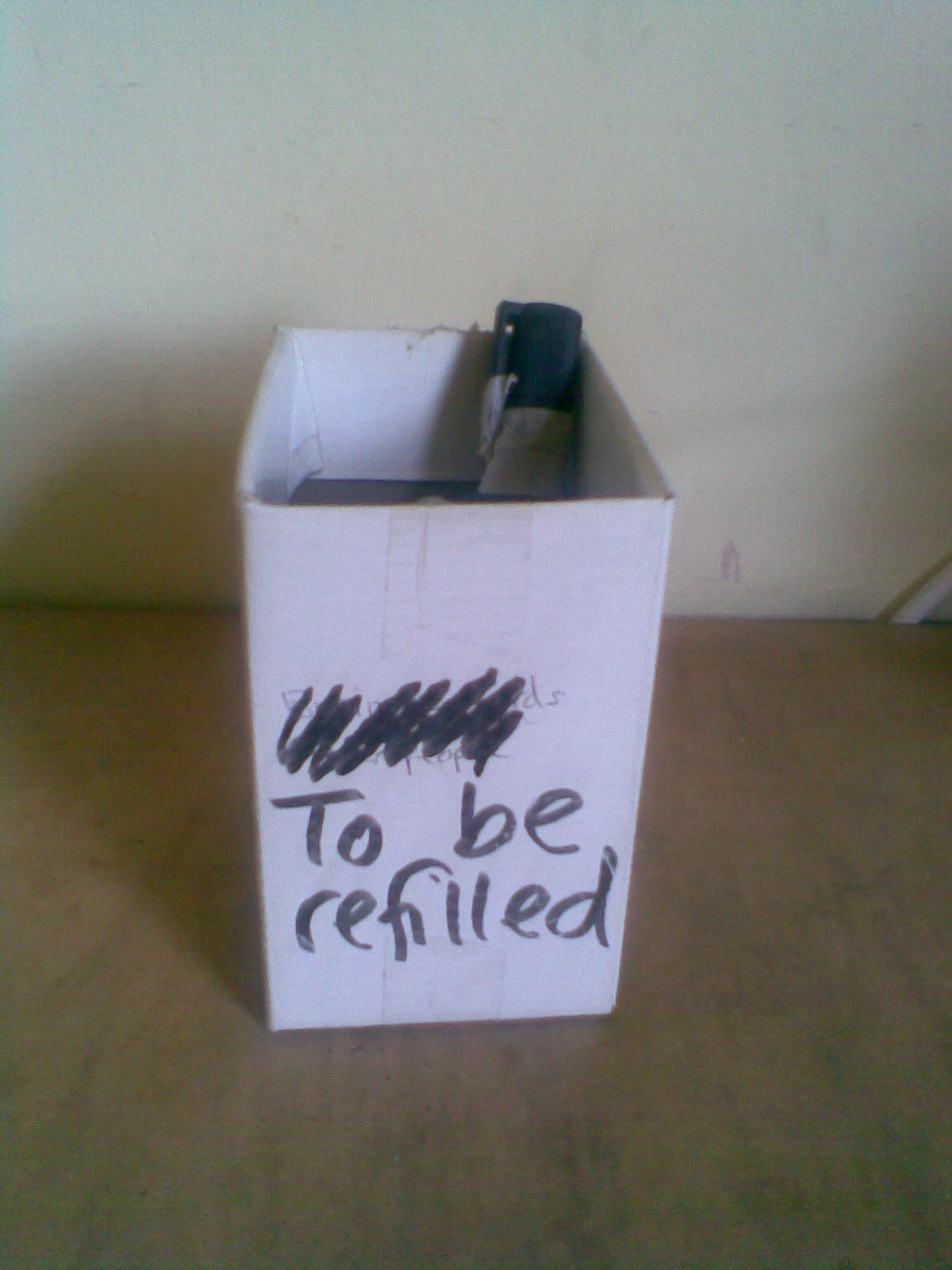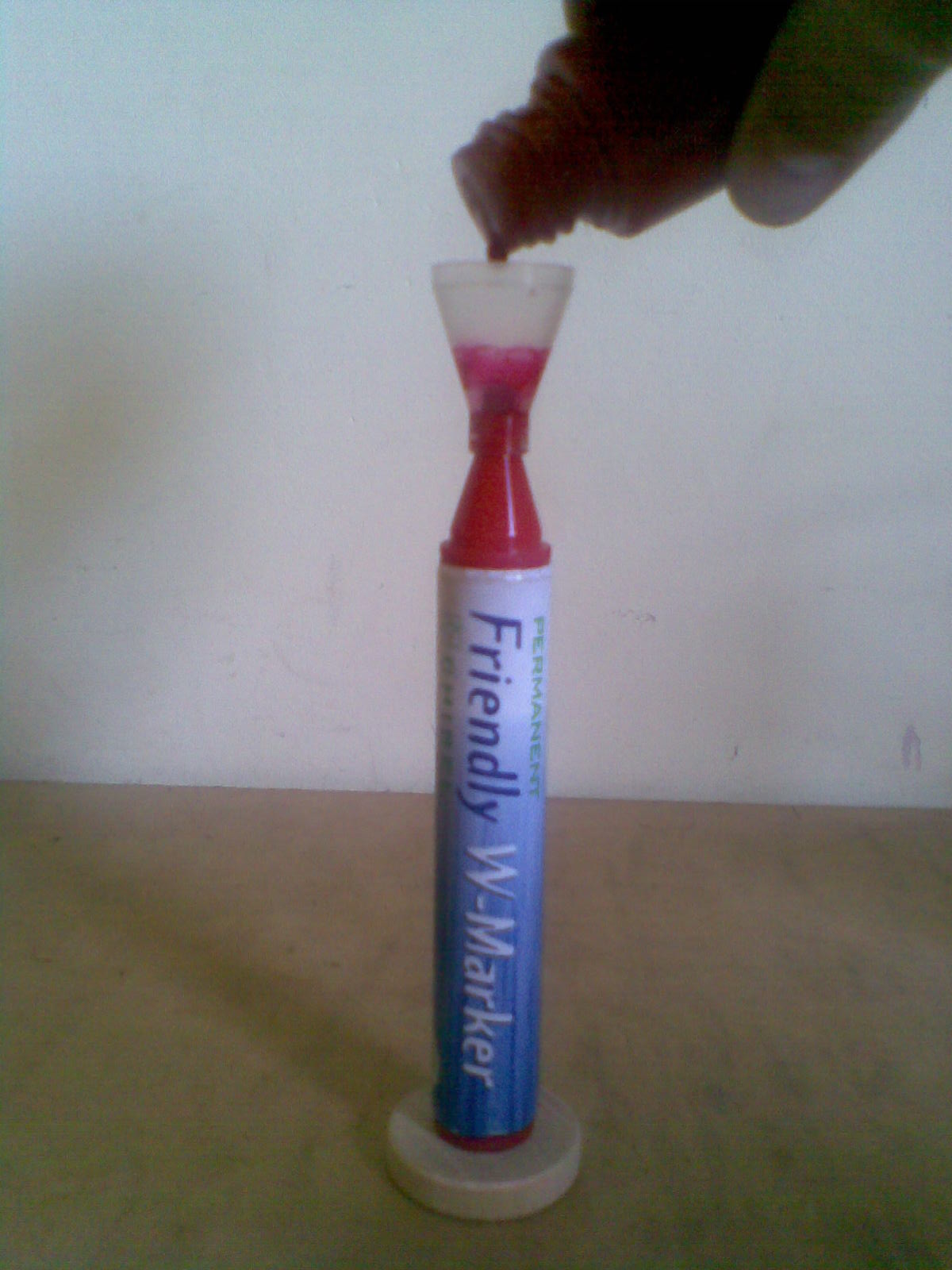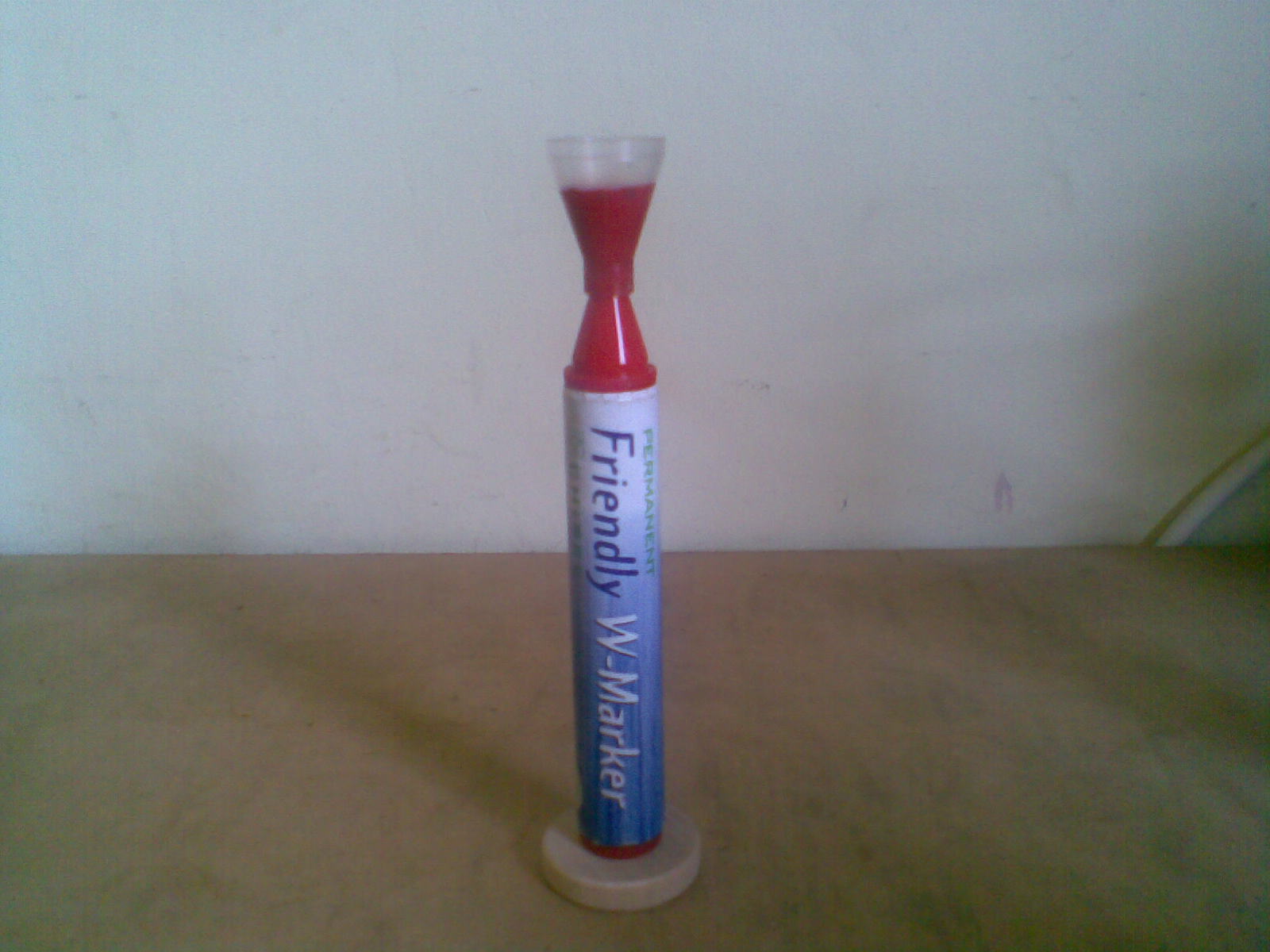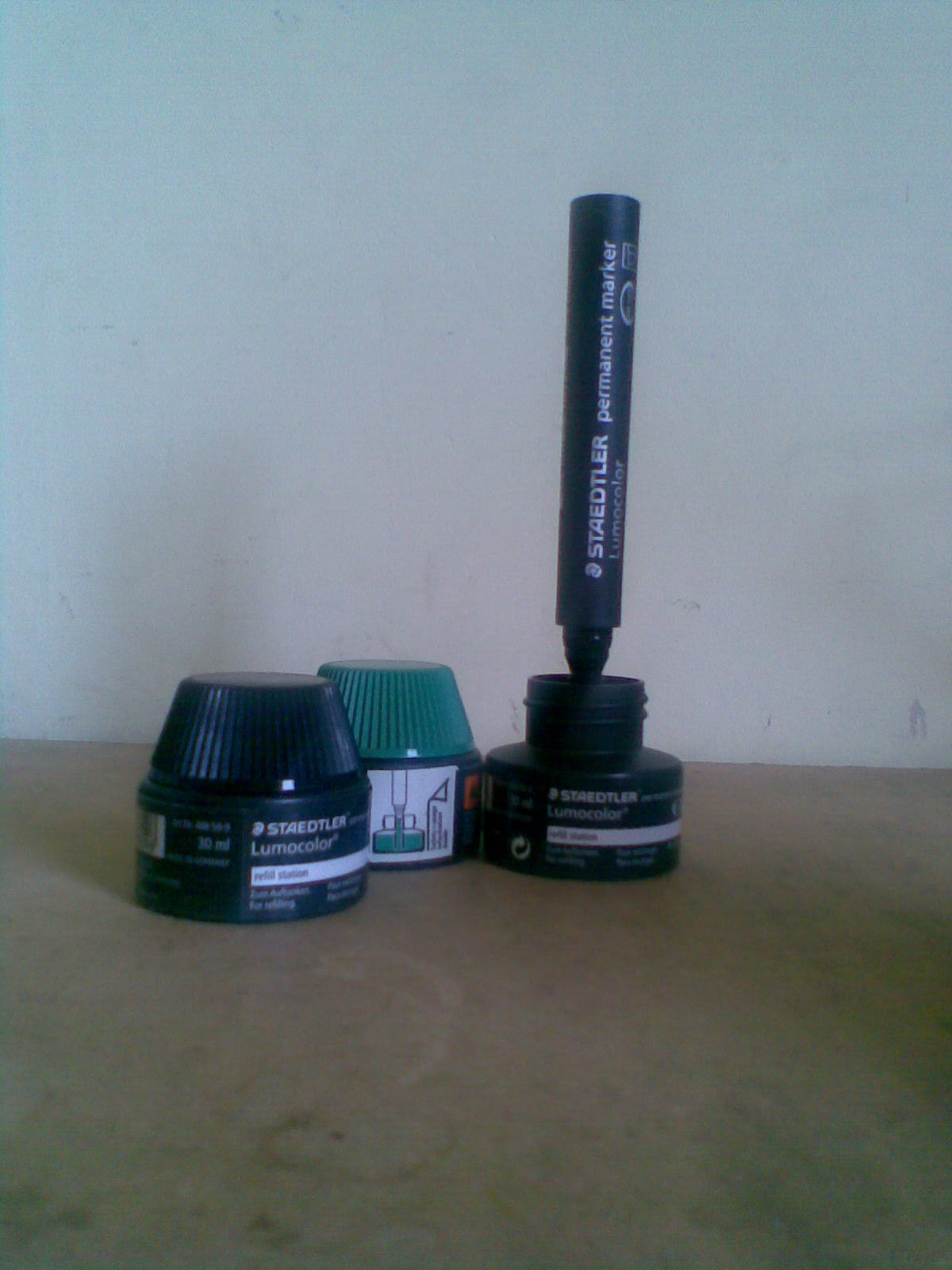In-the-room facilitators often use a lot of flip chart paper and plenty of marker pens. It's very irritating when the pens begin to dry up. A juicy pen is best. And I get through a lot of them. I use two different kinds of marker pens which I can refill: Staedtler and Rosinco. I buy the refill ink from the Green Stationery Company, who order them in for me because although the pens are widely available in the UK, the refills are not.
The systems are different.
With Rosinco, it's a 'drip and soak' system, where you stand the pen on its bottom in a rather charming wooden stand, and fit a plastic funnel around the nib end, a bit like the collar you put on a pet to stop it biting its stitches. You then drip the ink from a bottle into the collar, and it soaks into the pen. It's a bit messy when the collar is removed, as there is inevitably some ink left around the head of the pen. The pen itself uses a cardboard tube, and the refill set comes in a brown paper bag. So it's got an old fashioned 'natural' feel to it. And do you know, I couldn't find a web page showing the refill pack. If you know of one, please post a comment.
The Staedtler refill ink comes in a short stubby tub, and you put the pen head down into the refill station and leave it for four minutes (or it could be four hours, the diagram of a clock face is ambiguous).
During workshops, I put masking tape around the lid of dried up pens which I can refill, and put the non-refillable ones straight in the bin. When I get back to the office, the dehydrated pens go in a special box until I have time to do a refilling session.
So is it a waste of time? I don't mean this from an environmental cost-benefit analysis. I'm convinced enough that refilling is better than one-trip pens.
I mean clock time.
I'm a busy person. Can I slow down enough to supervise the pens as they drink their fill? Can I multi-task while they are soaking? (I can only blog about this once!)
Taking the time to do something slowly when there is a faster option feels eccentric and hard, when a glance to my left shows my to-do list growing all by itself. Shall we add slow stationery to slow travel and slow food?
So I multi-task by using pen refill time as time to stop and stare. I may not be standing beneath the boughs, but I can gawp at the tall tree outside my office window and - on a day like today - listen to the swifts screeching and see an urban fox sunning itself on a shed roof.
It's also an opportunity to reflect on mindfulness and intention. Even in these small things, I have an intention. Even for this small amount of time, I am aware that I find it hard to quieten the task master in my head.
So not a waste of time: a use of time.



